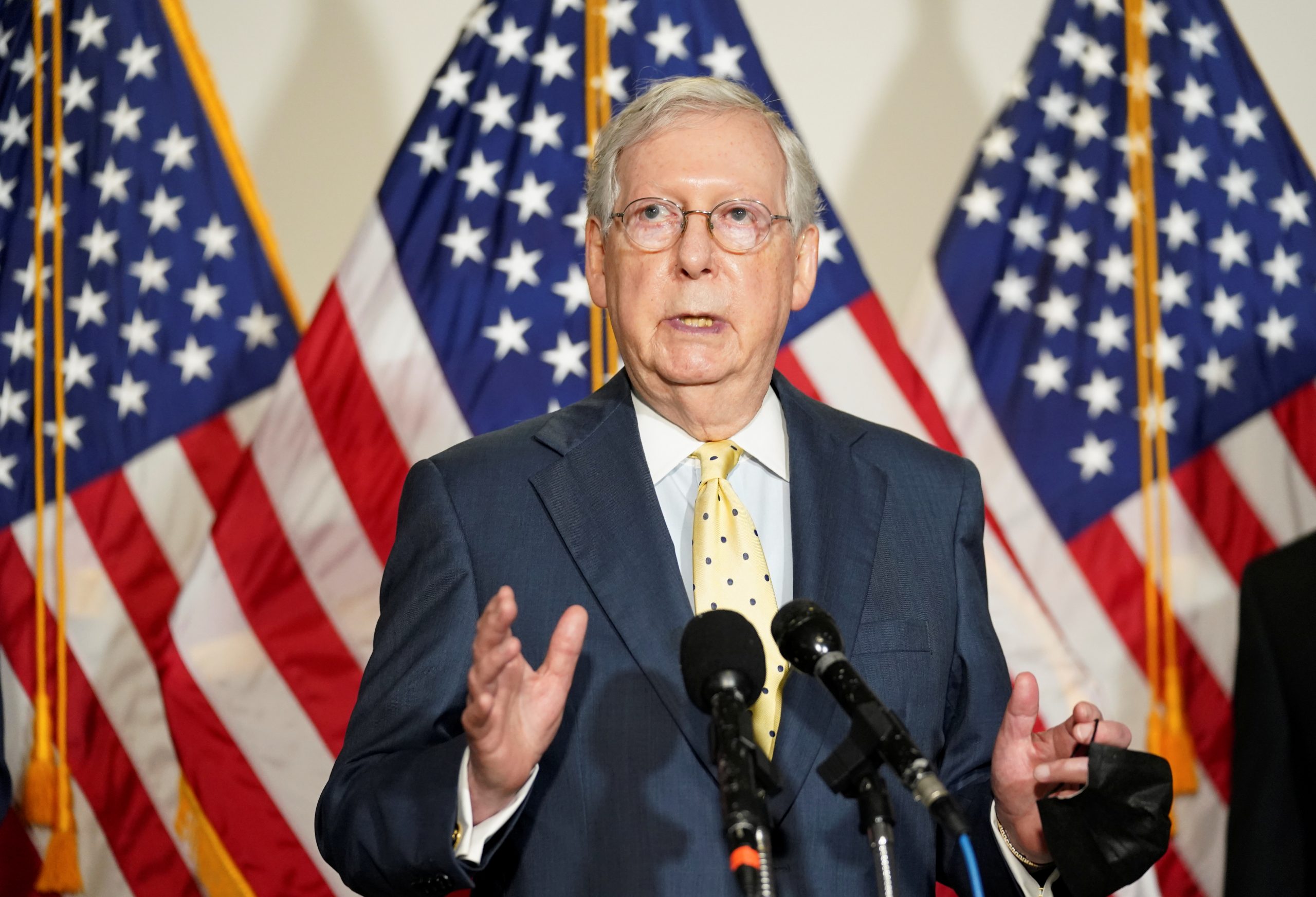The U.S. Senate was set to vote on Thursday on a Republican bill providing around $300 billion in new coronavirus aid, far below the $3 trillion Democrats insist is needed to stimulate an ailing economy and help people struggling through the pandemic.
In what could be the final vote on coronavirus relief in Congress before the Nov. 3 presidential and congressional elections, Republicans and Democrats appeared to be deadlocked over the next steps in responding to a virus that has killed more than 190,000 people in the United States and nearly 900,000 globally.
If Senate Majority Leader Mitch McConnell fails, as expected, to get the 60 votes needed in the 100-member chamber to advance his latest bill, lawmakers will likely focus on wrapping up other work within the next couple weeks so they can return to their home states to campaign for re-election in November.
Earlier this year, Congress quickly passed four major bills providing about $3 trillion to respond to the COVID-19 crisis. The Democratic-controlled House of Representatives passed a bill in May that would provide another $3 trillion in aid. But gridlock has since prevailed.
Some Republican senators expressed doubts on Wednesday that a compromise coronavirus bill would emerge quickly if McConnell’s latest “skinny” bill is rejected on Thursday in the Republican-controlled chamber.
“There’s always some possibility,” said Senator Richard Shelby, adding: “Unless something really broke through, it’s not going to happen.”
President Donald Trump’s handling of the coronavirus pandemic has become a centerpiece of the 2020 presidential race. Democratic nominee Joe Biden, who leads in national opinion polls, accused Trump on Wednesday of “dereliction” of duty in dealing with the pandemic, which has cost millions of jobs. The Republican president has touted his management of the crisis.
The Republican bill would renew a federal unemployment benefit, but at a lower level than Democrats sought. It also would set new protections for businesses against liability lawsuits during the pandemic, which Democrats have labeled a “poison pill.”
An array of other initiatives, including aid to state and local governments, a second round of direct federal payments to households and bailouts for U.S. airlines during the economic downturn were not addressed in the Republican bill and could be considered in a possible post-election session of Congress.
(Reporting by Richard Cowan; Editing by Scott Malone and Peter Cooney)

























 Continue with Google
Continue with Google